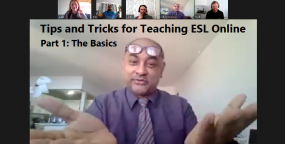
In the long-lost world before the Covid -19 pandemic, I was a woman with a bachelor’s degree in drama, exploring careers in the theater industry. I had the opportunity to be a drama leader in many programs and camps for children between the ages of 5-17 years old. I had great experiences and opportunities, but I still struggled to figure out where I fit in the drama community. Then, the world stopped unexpectedly, and I was left to make hard decisions. People were not allowed in closed confined areas, due to the risk of infection. The 2020 season was canceled and things started looking grim. People were not allowed to associate with strangers. It soon became a legal requirement to not have gatherings with more than 10 people. Covid-19 stopped everything. With the sudden halt of the theater industry, I was forced to look for another career path. Through the months of isolation and self-reflection, I wanted to find a job where I felt like I was making a difference. What job would allow me to be creative and motivational? The answer, for me, was teaching. It was then I started to explore the world of teaching English as a second language.

As a child of immigrant parents, I knew that, for them, speaking English created endless opportunities for a better quality of life. This was why I decided to eventually travel back to my family’s homeland of Cyprus. Cyprus is a beautiful island filled with rich history, stunning beaches, and vibrant culture. Especially after a year of being stuck in my house, I wanted to take the risk to pursue moving to Cyprus. After visiting the island countless times to visit family, I’ve always felt a connection to my heritage as a Greek Cypriot. I observed that my family members invested in teaching their kids English, as they will eventually grow and seek new opportunities outside of Cyprus. I figured that being born and raised in Canada could work to my advantage. There are very few English camps, and programs in Cyprus that educated students through the art of drama. This is why I took the plunge, and worked towards getting my teaching certification. I want to get in touch with who I am while helping others discover who they are. After my fantastic experience of obtaining my 120-hour teaching certification with Oxford Seminars, I realized just how useful drama could be in teaching English. This made me feel liberated. In university, I learned that drama can play a huge role in teaching students the reality and culture of the English language, but never truly considered utilizing my skills this way. I felt like I finally found a new passion for implementing the world of drama in teaching English as a second language.
Now, I would like to explicitly say that I am not an expert on teaching the English language. In fact, I am new to the ESL community. I am still discovering all the new avenues of how I can implement drama in teaching English. Every day I am learning new ways to improve my skills as a teacher and myself as a person. I believe teaching involves a substantial amount of self-reflection. With that being said, I had to ask myself: “what makes a good teacher?”. I thought of my favorite teachers in school and asked myself: “why were they my favorites” and “how did their teaching impact my education?”. My drama teachers were always my favorite. Why? They were not afraid to be expressive in their lessons, and prioritized emphasizing how important human connection is.

As a kinesthetic learner, I was very successful with lessons that involved a lot of student talk time, group work, and presentations. Throughout their classes, I gained the self-confidence to properly communicate with others. I also mastered the ability to translate my creative thinking into ideas and stories in a room full of people. My drama teachers molded me into the person I am today. I hope that I can be that type of teacher to my students. In university, I learned that drama helps improve students’ linguistic skills, creativity, and motivation in learning. With the knowledge and little teaching experience that I have, I am here to share what I’ve learned so far in this exciting journey of mine!
Teaching online was a great playing field for me. I learned a lot about my strengths and weaknesses. I like to think of myself as a blank canvas. When you are diving into a shiny and brand-new world, it is important to acknowledge that you are not going to be perfect at the beginning. I am embracing my learning experience and am always looking for ways to improve myself. This is my mentality.

During my time teaching online, I realized the importance of student talk time. I love to talk and present, but I had to remember that I was not just giving a PowerPoint presentation. I was teaching students! As a new ESL teacher, I noticed I needed to learn how to properly balance teacher and student talk time, which I found challenging. Some may think that teaching online is easier than teaching in a physical classroom. I would have to disagree. Although both have pros and cons, teaching a language online can be difficult for student engagement and classroom management.
I taught students between the ages of 5 and 11 years old. Due to the time difference, my students had lessons with me around 7-9 pm. This was tough because I knew my students already had a whole day filled with school and activities before class. Our class was likely their last obligation before the end of their day. Therefore, student engagement became my biggest challenge. This is where I had to utilize my drama skills. In my experience, when learning drama performance, we focused on three areas: voice, movement, and acting. How do I apply these three areas to teaching? Easy. Improvisation, role play, and total physical response.
I knew that I needed to engage my students as soon as possible. The learning objective for one of my lessons was for the students to list ingredients for making a pizza or pie. What character and materials could I use to help optimize the students’ learning experience? I could simply act like a chef! What materials would I need? Fake food, a bowl, and a spoon. Although the use of props is universally known to be a great tool in education, we must be innovative in how we use them. Perhaps if you were in a classroom instead of on a computer, you could create a restaurant setting. You could have students develop menus, role play as waiters, guests, and chefs. There is an abundance of freedom when creating an atmosphere in context.

Although we cannot replicate this atmosphere to the same extent while teaching online, it is essential to note that you, as the teacher, must be committed to the role play. You may not have the student physically in front of you, but you have a camera. Take out the props, put on your hat, change your voice, and show the energy that they want to see. People share their world views, opinions, and cultures through language. However, language is more than the words we speak. It is also communication through actions and gestures. The energy in body language not only engages the student but also stimulates the imagination. Total physical response builds self-confidence in students while they experience the English language in operation. When I started using more TPR, my young students grasped new vocabulary, concepts, and sentences more efficiently. I noticed my students’ communication improved using body language. The realm of role-playing allows students to embody realistic communication through physical responses. Once I started committing to the role play with my props and actions, I received a burst of energy from my students. Role-playing can help model words, concepts, and sentence structure. It is also a great way to put you as the teacher in a supportive role, while encouraging students to speak and improvise in a realistic setting.
As a new English teacher, I often find myself thinking from the perspective of the student as a means to improve. Lately, this has been easier to do, as I have become a student myself. In preparation for moving to Cyprus, I am currently learning Greek online through a popular
application called Duolingo. As much as I learn and push buttons in this application, the use of the Greek language does not come into context, or at least not until I am in an authentic situation where I have no choice but to use the language to communicate. If the Greek lesson on Duolingo is about ordering at a restaurant, how practical would this lesson be if I cannot practice and improvise in Greek? Feeling and emotion are a part of our human connection, and every language’s intonation is different. Because of this, I know I will only learn how to properly order at a restaurant in Cyprus through role-playing and practicing my Greek out loud with my family members. Therefore, encouraging student talk time in context is crucial to the learning process. We all know that students will eventually need to communicate in English for either work, school, or life in general. Why not prepare them in the most authentic way possible? Drama is the gateway to exploring the theoretical and practical aspects of the English language.
Drama has always made me feel liberated. It allowed me to be fearless in life and to hone every opportunity that life throws at me. I want to ignite that fire in my future students. I want their learning experience to translate into other aspects of their lives, allowing them to grow into who they aspire to be. I acknowledge that I have a whole career ahead of me. However, I know through drama, there are endless possibilities.
 A 2021 Oxford Seminars TESOL/TESL/TEFL certification course graduate, Joanna Panayi has also earned a bachelor’s degree in drama and has been a drama leader in numerous programs and camps for children. As an online English teacher, she has been finding ways to incorporate her training and experience in acting in the language classroom.
A 2021 Oxford Seminars TESOL/TESL/TEFL certification course graduate, Joanna Panayi has also earned a bachelor’s degree in drama and has been a drama leader in numerous programs and camps for children. As an online English teacher, she has been finding ways to incorporate her training and experience in acting in the language classroom.



![How an Oxford Seminars Grad Got an Online Teaching Job [Video] How an Oxford Seminars Grad Got an Online Teaching Job [Video]](https://www.oxfordseminars.com/blog/wp-content/uploads/2021/03/title-image2-285x144.jpg)







Leave a comment